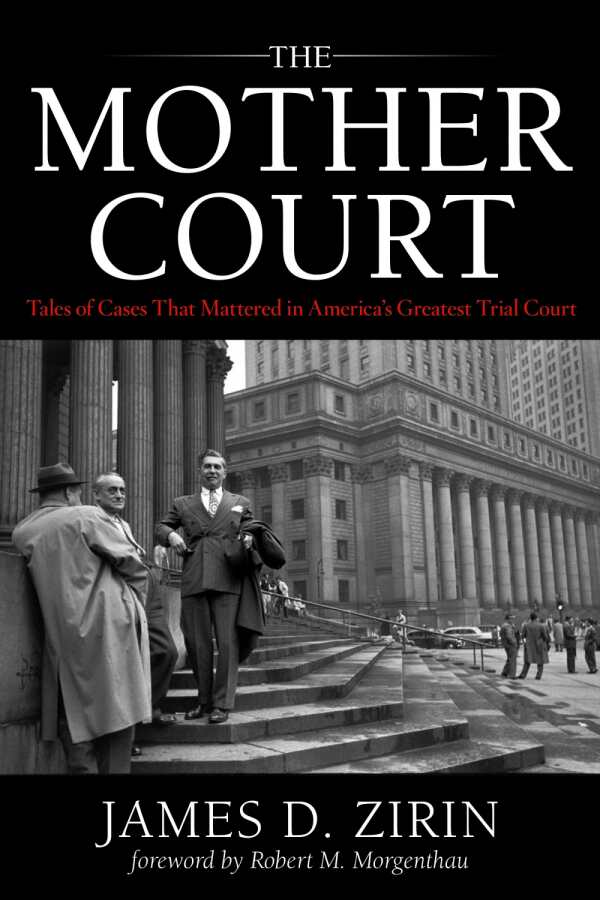The Mother Court
Tales of Cases That Mattered in America's Greatest Trial Court
History and critique converge in a thorough analysis of this New York court.
The Mother Court: Tales of Cases That Mattered in America’s Greatest Trial Court, by James D. Zirin, is a well written and adeptly researched overview of the United States District Court for the Southern District of New York, primarily during the decades since World War II. According to Zirin, lawyers view this Court as the preeminent trial court in the United States.
Zirin began his lawyering career as an assistant US attorney in New York City, in the office of Robert M. Morgenthau, who wrote the foreword for this book. In private practice, Zirin developed an outstanding career as a trial attorney, generally in the field of commercial and securities litigation.
After devoting four chapters to the history of the court, Robert Morgenthau, the jury system, and a topic close to the heart of every trial attorney, the art of cross examination, Zirin spends the remainder of the book addressing various legal issues that have come before the “Mother Court.” True to his roots as a prosecutor, Zirin sets each issue within the traditional adversarial form, such as “U.S. v The Mob.” He covers such issues as the efforts of the government to suppress obscene material, the response to communism in the 1950s, and the government’s response to the 9/11 attack. The book concludes with material on people Zirin considers good federal judges of the Mother Court and his thoughts on the current status of the court.
Zirin is candid in at least referencing areas where he believes the Mother Court fell short. In the chapter devoted to prosecutions of alleged communists during the Red Scare, Zirin says, “The Communists were plainly victims of the hysteria of the time.” Most readers would enjoy a more thorough discussion of the case and the decision’s effect on the people involved.
Judge Constance Baker Motely, an African American lawyer deeply involved in the legal side of the civil rights movement, also receives a curious review. She was the first African American woman admitted to Columbia Law School. Zirin notes that some lawyers thought she “might have been the product of affirmative action.” He offers no direct refutation or in-depth discussion of this opinion.
The Mother Court is an accessible short history of the Federal District Court for the Southern District of New York that will probably be widely read by attorneys and judges.
Reviewed by
John Senger
Disclosure: This article is not an endorsement, but a review. The publisher of this book provided free copies of the book to have their book reviewed by a professional reviewer. No fee was paid by the publisher for this review. Foreword Reviews only recommends books that we love. Foreword Magazine, Inc. is disclosing this in accordance with the Federal Trade Commission’s 16 CFR, Part 255.

